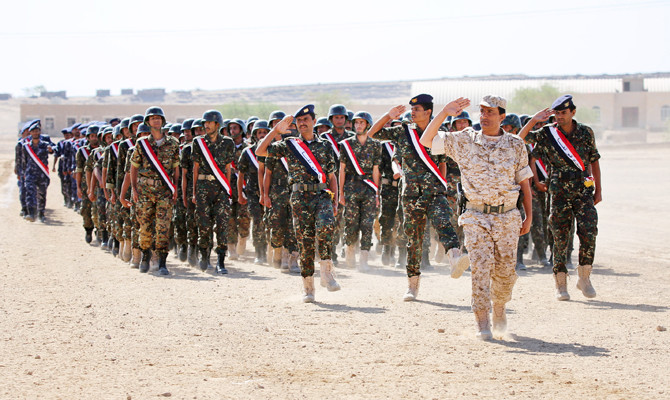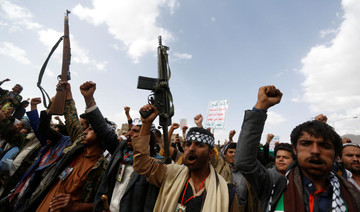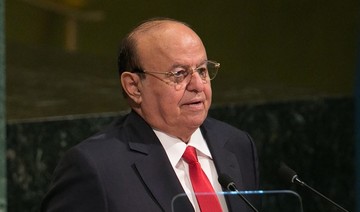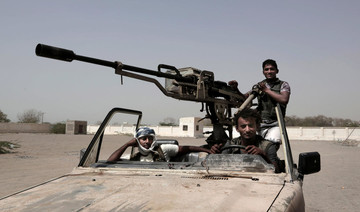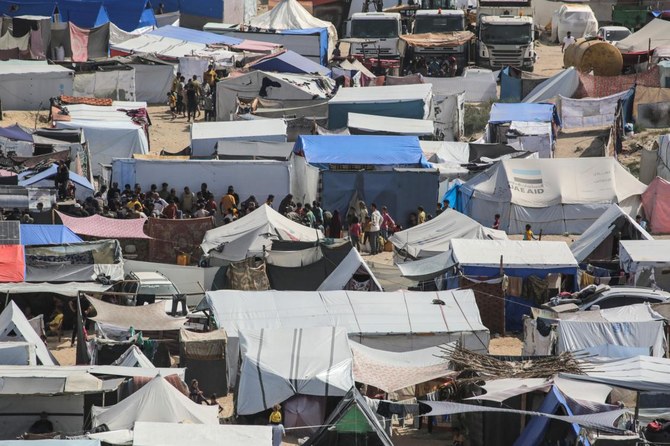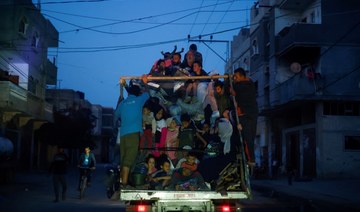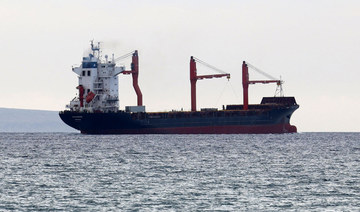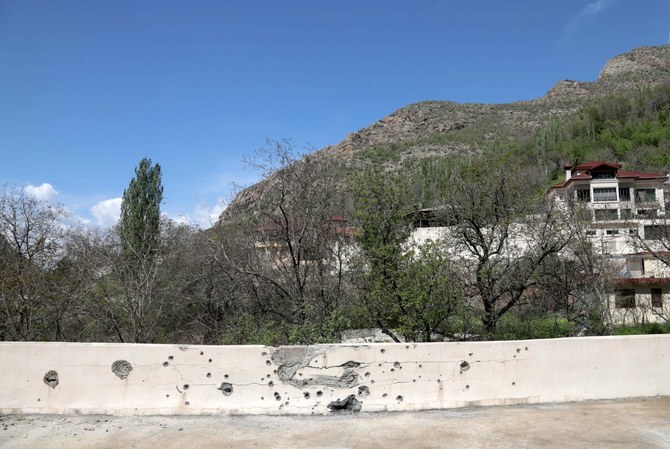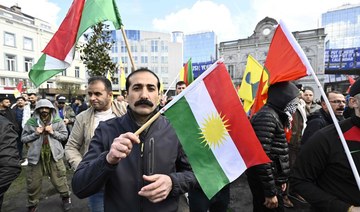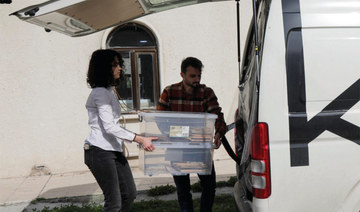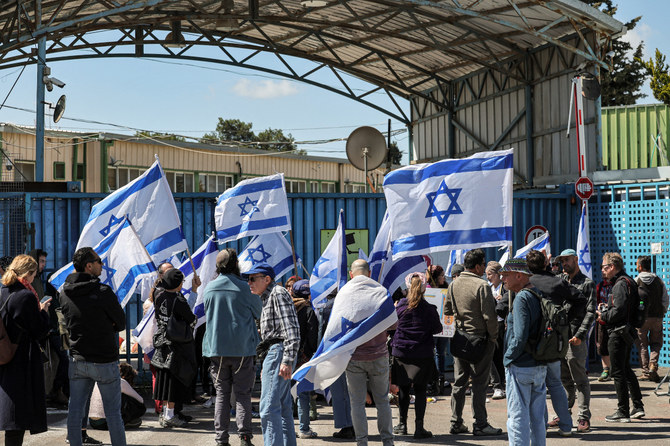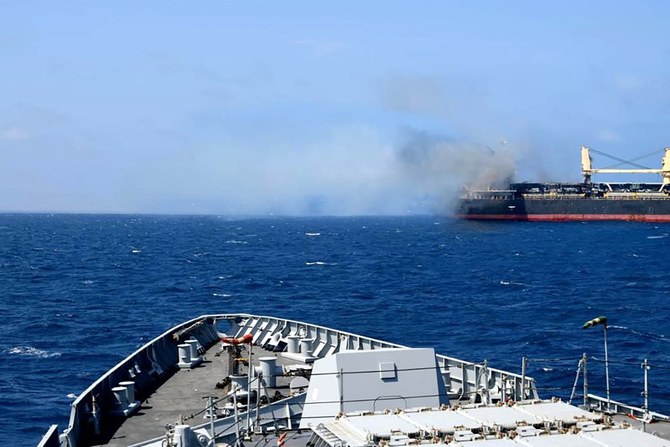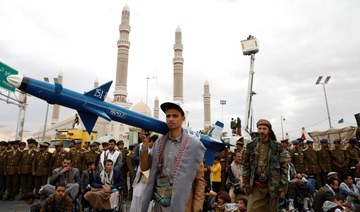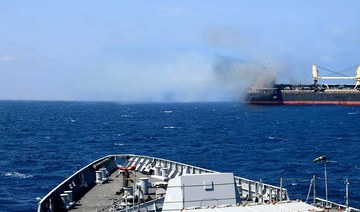DUBAI: When Yemen’s national army marked the anniversary of north and south becoming one country, it was a reminder of the growing danger of the country once again fragmenting.
On May 22, 1990, the Republic of Yemen was formed when the two existing countries agreed on a unity constitution.
On Tuesday, President Abed Rabbo Mansour Hadi, who leads the internationally recognized government, which is fighting Houthi militias, said the unification of north and south Yemen remained the most popular situation and one that “reflected the civilization of an ancient people.”
As it stands, the Houthis control the capital Sanaa and the north, while the government, backed by the Saudi-led Arab coalition, controls the south and much of the rest of the country. Twenty-eight years after the north and south merged, the challenges of bringing the country under the control of a single government remain as great.
“When it happened in 1990, Yemen’s unification was nearly universally viewed as a historical achievement,” Adam Baron, co-founder of the Sanaa Center For Strategic Studies, told Arab News. He said current tensions are a result of how the unification was carried out.
“Until they’re dealt with — and until serious dialogue occurs — these fissures are only likely to deepen,” Baron said.
Yemen’s divides were exacerbated by colonialism. Britain had been present in the south from 1874 in agreement with the Ottomans, while the north was part of the Ottoman Empire. After the collapse of the empire in 1918, the north became an independent state and the south became a British colony in 1937.
Following civil wars in the north and the south and weak economies, the governments of the two states agreed to renew discussions about unification.
In 1990, Ali Abdullah Saleh of North Yemen and leader of the south Ali Salim Al-Beidh agreed on a unity constitution.
However, conflicts within the coalition resulted in the self-imposed exile of Al-Beidh, who had become vice president of the transitional government, to Aden in 1993. After clashes intensified, civil war broke out in May 1994.
In the aftermath of the war, in October 1994 Saleh was elected by Parliament to a five-year term. He remained in power until he was overthrown by the 2011 uprising that forced his resignation in 2012.
Six years later and Yemen has entered its third year of war between the Iran-backed Houthi militia against the national army and the Popular Resistance supported by the Saudi-led Arab Coalition.
Yemeni political analyst Baraa Shiban said that after 2011 the people aspiring for change and building a new country strongly believed in the outcomes of the National Dialogue, a 10-month consultation process that would form the basis of a new constitution. Many believed a new federal system of government would be the best outcome.
“The Yemeni people didn’t have the chance to vote for this new vision due to the coup led by the Houthis,” Shiban said.
“The regime that ruled after 1990 failed in meeting the dreams and hopes of the Yemeni people, who struggled for many years to reach unification.”
He added that Hadi’s administration needs to find a new form of governance that meets the demands of the people.
Amid the conflict between the Houthis and the internationally recognized government, other battles have erupted with Al-Qaeda and Daesh insurgents, as well as the Southern Transitional Council, who are calling for the south to secede.
Tensions escalated earlier this year when army forces clashed with southern separatist fighters.
Fatima Abo Al-Asrar, senior analyst at the Arabia Foundation think tank in Washington, said there is no indication that the government of Yemen is working to improve relations or solve the southern crisis.
“So far, the government of Yemen has directly clashed with southern leadership that called for secession,” she said. “The government fails to understand the pulse of the street and fails to realize that it is the only culprit standing in the face of prosperity.”
Yemen’s Prime Minister Ahmed bin Dagher accused southern separatists of attempting a coup in the interim capital of Aden after they took over the government headquarters in January.
At least 15 people were killed, among them three civilians, medical sources in four hospitals in Aden said.
The clashes led Saudi Arabia and the UAE to send envoys in a bid to end the standoff.
The Saudi and Emirati envoys “met with all concerned parties, stressing the need to abide by the cease-fire ... and refocus efforts on the front lines against the Houthis,” the UAE’s official WAM news agency reported.
However, Al-Asrar says that the country is already divided. “There is no one unified Yemen anymore. Northerners find it difficult to step foot in the south. It’s unity on paper only, but not in the hearts and minds of people.”


